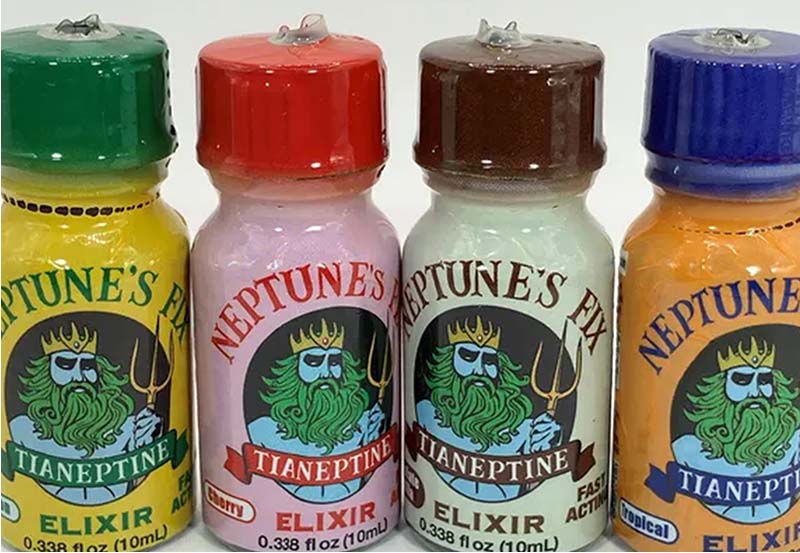
By Krys’tal Griffin – Delaware Online –
A popular harmful substance can be found on many store shelves, but that soon won’t be true in Delaware because it’s now illegal to sell in the First State.
Here’s what you need to know.
What is House Bill 21?
House Bill 21 was introduced on Dec. 19 by Rep. Kimberly Williams, D-Stanton, and seeks to ban the sale of tianeptine in Delaware by identifying it as a Schedule I controlled substance.
Tianeptine, known as “gas station heroin” for its easy accessibility at local gas stations, is marketed as Coaxil or Stablon and is prescribed in some Latin American, Asian and European countries to treat depression and anxiety, according to the U.S. Food and Drug Administration.
In the United States, tianeptine is not approved for medical use. The FDA classifies the drug as a substance that does not meet the statutory definition of a dietary ingredient and brands it as an unsafe food additive.
Tianeptine is also known as:
Tianeptine sulfate
Tianeptine sodium powder
Tianaa
Tianna Green
Tianna Red
Tianna white
ZaZa
Neptune’s Fix
Pegasus
Neptune’s Elixir
The FDA reports that tianeptine has been sold in-store and online, typically in tablet or powder form.
Is tianeptine safe to use?
The FDA does not approve Tianeptine for any medical use. It is linked to serious health risks and even death, despite being illegally sold with the claim that it will treat mental illnesses and opioid use disorder, improve brain function, ease pain, or help other conditions.
While some countries have approved tianeptine use, others have restricted how it is dispensed and prescribed or revised product labels to warn of the possible side effects and addiction risk.
The FDA reports that unwanted effects of and bad reactions to tianeptine are increasing, noting that poison control center cases involving tianeptine exposure have increased nationwide. The number of total cases jumped from 11 cases between 2000 and 2013 to 151 cases in 2020.
“People seeking to treat their ailments sometimes mistake products as being safe because it’s easily available, whether online or even at gas stations,” the FDA said. “But availability is no indication of effectiveness or safety.”
From 2000 to 2017, 217 tianeptine exposures were documented, with 75 reported in the South, 54 in the West, 47 in the Midwest and 41 in the Northeast, according to the Centers for Disease Control and Prevention.
The demographic most impacted by tianeptine exposure was 21- to 41-year-olds, followed by those between the ages of 41 and 60, those under 20 years old and those above 61 years old.
The CDC reports that clinical effects of tianeptine abuse and withdrawal can mimic opioid toxicity and withdrawal, with neurologic, cardiovascular and gastrointestinal signs and symptoms possible.
Other effects of tianeptine exposure include:
High blood pressure
Drowsiness
Confusion
Coma
Cellulitis
Fever
Miosis
Urinary retention
Kidney failure
Acidosis
Muscle weakness
Rigidity
Delusions
People with a history of opioid use disorder or dependence may be at an increased risk of abusing tianeptine, especially if used with other drugs like antidepressants and anti-anxiety medicines, the FDA said.
According to the FDA, tianeptine is not generally recognized as safe, does not qualify as a dietary ingredient, and is not an approved food additive; therefore, it is considered adulterated under the Federal Food, Drug, and Cosmetic Act.
The FDA previously stated that it issued warning letters to companies illegally marketing tianeptine products as dietary supplements and unapproved drugs and issued import alerts to stop tianeptine shipments at U.S. borders.
Several U.S. states have taken action against the drug through executive orders. Tianeptine is banned in Alabama, Florida, Georgia, Indiana, Kentucky, Michigan, Mississippi, Ohio and Tennessee.
Delaware just joined that list.
Delaware’s ban on tianeptine is official
HB 21 passed in the House on March 20 and in the Senate on June 30, the last day of the legislative session.
Gov. Matt Meyer signed the bill into law on the afternoon of July 21 at the Carvel Government Building in Wilmington, along with several other bills related to healthcare and public health.
The bill is effective immediately and makes tianeptine illegal to sell, possess or distribute in Delaware. Senate Amendment 1, which was introduced and passed by the Senate on June 30, was added to the bill to “ensure that no civil or criminal penalties are imposed” on someone for possessing a small quantity of tianeptine. HB 21’s goal is to remove the harmful substance from shelves, not to punish individuals for purchasing it.
Sen. Stephanie Hansen, a Democrat in the 10th district, is another sponsor of the bill and stated at the bill signing that she wanted to support HB 187 due to its already visible impact in Delaware and Pennsylvania.
Although she didn’t catch tianeptine products in her district when she visited a handful of stores, she said “it just means that we were able to get some of it off the shelves preemptively.”
When asked how the tianeptine ban and removal of current stock from local shelves would be enforced, Hansen said the plan is still being developed.
“Delaware Department of Health and Social Services is actually the entity that will be in charge of enforcing. We’re gonna find out with the new director if this is something that they would be interested in checking,” she said. “Other than that, I could see it being complaint-driven, unless we have some sense as to where it is here in Delaware.” Meyer added that residents can help by checking for tianeptine products when they visit stores and reporting any they spot.


Leave a Reply